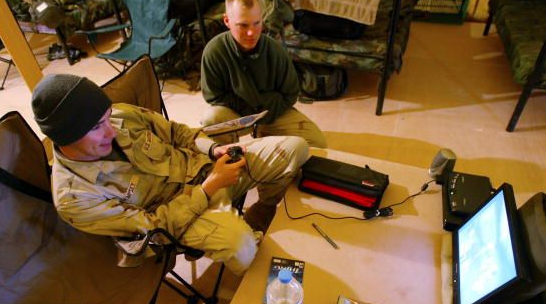Between the Penny Arcade comic and the Der Untergang parody, the recent news of Ubisoft's digital rights management scheme has made its way around the Internet quite a few times.
Many cite the new DRM as an equal, measured response to the insultingly common practice of piracy and have sided with the publisher. I imagine most of those people have stable Internet connections. But what about people who don't have a pervasive, easily-accessed connection? What about the South African teen, the Costa Rican university student, or even the American soldier?

Gaming on a besieged military base is hard enough. But compound your daily fear of incoming mortar rounds with equally frightening DRM, and suddenly, your day is considerably less fun than you had anticipated.
I'm talking, of course, about the anonymous U.S. soldier who recently gave his two cents on the subject. The deployed soldier claimed that his past experiences with DRM ranged from "annoying to unforgivable." In his Iraqi forward base, Internet connectivity is decidedly expensive and erratic — the soldier pays $150 a month for a 192k connection.
Iraq isn't the only place you'll find concerned gamers. Whether you're in rural Kenya or the university district of Moscow, you're sure to find people who buy and play video games. Yet, regardless of the legitimacy of their purchase, Ubisoft has boldly declared that they can't play Assassin's Creed 2, Splinter Cell: Conviction, and every other Ubi-published title.
I hate piracy as much as the Ubisoft executives do — but this isn't the answer. Until we live in a thoroughly and and reliably connected world, we must continue to search for creative resolutions to this issue. As usual, we welcome all of your thoughts and opinions on the subject [Ars Technica via GamePolitics].

